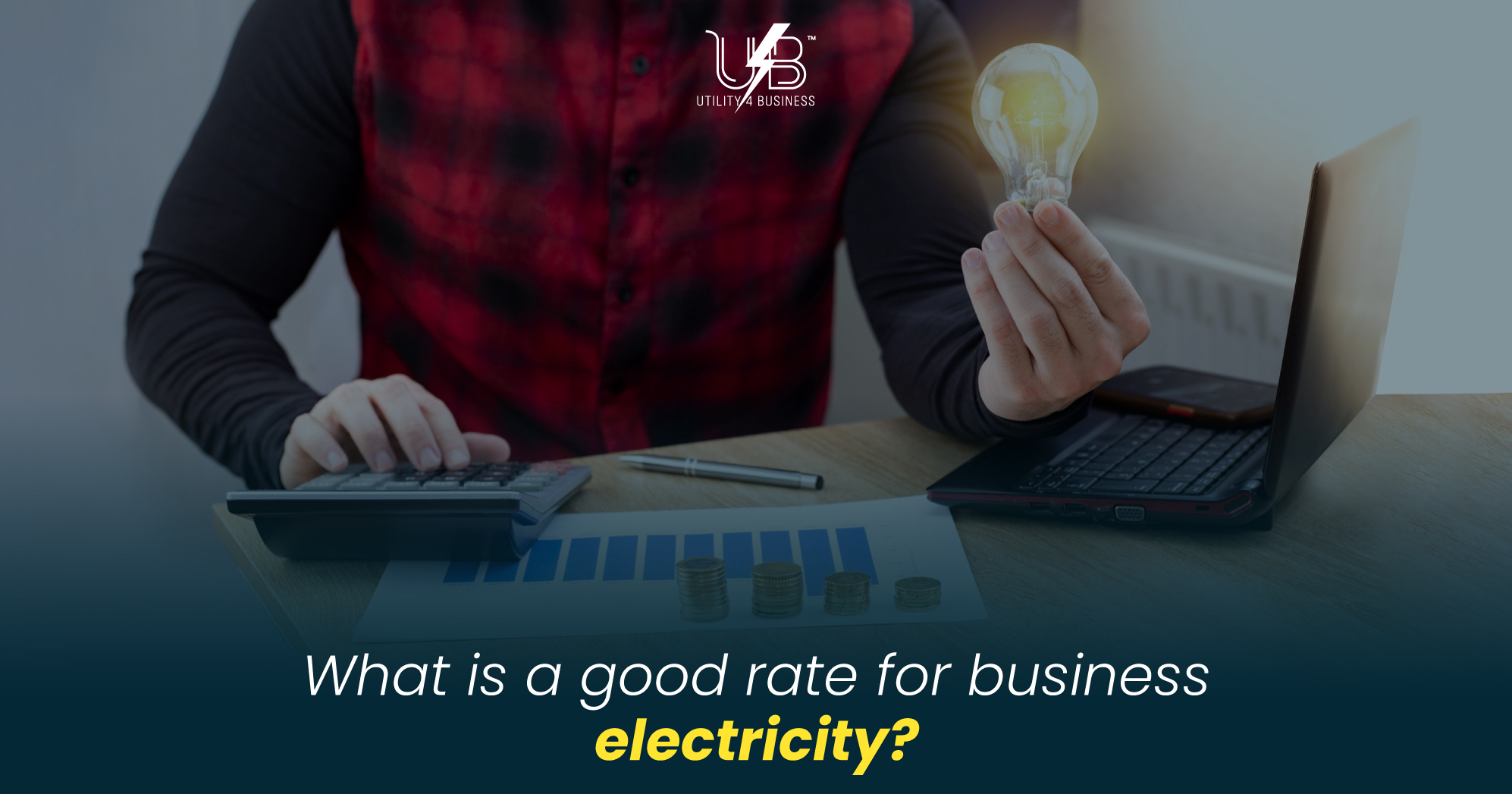What is a good rate for business electricity?
Compare Uk Business Electricity Rates

Did you know the UK business energy market hit £106 million in 2024? That’s a massive 72.3% jump since 2012!
Now, that might just sound like a big headline stat—but if you’re a small business owner, you’re probably feeling it where it really counts: on your electricity bill.
As of March 2025, the average annual electricity bill for a UK small business is £2,889.37. But here’s where things get a little wild (and honestly, a bit unfair). A micro-business might only pay around £855.68 a year, while a large business? They could be shelling out over £10,388.64!
The gap is huge, and it's exactly why comparing business electricity prices matters more than ever.
What Is a Business Electricity Rate?
A business electricity rate is your cost per unit of electricity (typically measured in kilowatt-hours, or kWh)
Business electricity rates are fixed against higher demands - the power needs of a commercial business, as opposed to a residential customer - and these also tend to have time commitments and specialised invoices.
Furthermore, like household energy, these rates are not capped, providing you more room for negotiation. But the problem here is that you might overpay for electricity rates.
How Are Business Electricity Bills Structured?
There are two main parts of a business electricity bill:
- Unit rate (per kWh): This is the actual cost for the electricity you use.
- Standing charge (daily rate): A fixed fee you pay just for being connected to the power grid.
Other possible charges include:
- VAT: Typically 20% for businesses, though smaller users might pay 5%.
- Climate Change Levy (CCL): A government tax on non-renewable energy.
- Capacity charges: For high-consumption companies with peak usage needs.
Understanding these elements is key when doing a proper business electricity comparison—so you’re not comparing apples with oranges.
Factors That Influence Business Electricity Rates
Electricity rates for businesses aren’t static—they're shaped by a mix of factors that can shift month by month. Let’s look at some of the important factors below:
1. Location, Location, Location
Where your business is located plays a major role. Rates usually vary according to regional infrastructure, the population density and the demand of your business.
In 2025, the average unit price in London is about 25.5p/kWh, while at the same time, the rates can go up to 29.1p/kWh in North Wales and Merseyside.
2. Business Size and Usage
Large users tend to get the best business electricity deals. Suppliers are more willing to negotiate if you’re spending more.
In the UK:
- Microbusinesses often use less than 5,000 kWh/year
- Small businesses range from 5,000 to 15,000 kWh/year
- Medium-sized businesses may use up to 50,000 kWh/year or more
Having a better knowledge of your usage, you’ll have more points of negotiation to bring to the table.
3. Market Conditions and Timing
Global events, fuel prices, and supply issues influence commercial electricity prices. These changes affect the wholesale market, which in turn shapes what suppliers charge you.
If you’re on a variable or deemed contract, these shifts hit harder. That’s why it’s often smarter to lock in a fixed-rate deal when market prices are low, especially if you want predictable business energy costs.
What Is Considered a “Good” Business Electricity Rate?
This depends on your industry, location, and usage, but here’s a baseline to help you judge.
Average Rates to Know
In 2025:
UK business unit rate: 20p–30p per kWh
Standing charges: 21p–33p per day
If you’re paying above this, it may be time to explore your options.
Balancing Unit Rates and Standing Charges
A good rate for business electricity is not just about the cheapest kWh. If you’re a low-usage business, a low standing charge is more important. For high-usage companies, a cheaper unit rate can mean thousands in savings.
Contract Type Plays a Big Role
- Fixed-rate contracts protect you from price hikes
- Variable and deemed contracts fluctuate, and often cost more
- Green tariffs support renewables, and may be worth the small extra cost if sustainability is part of your brand
How to Secure a Good Business Electricity Rate
Now, let’s talk about what you can actually do to cut those costs.
1. Compare Suppliers
Use trusted platforms to check the current business electricity rates across multiple suppliers.
Avoid letting your contract roll over into a deemed rate—it’s often 70–80% higher than a fixed deal. Proper business electricity comparison is the fastest way to find savings.
2. Know When and How You Use Energy
Analyse your energy usage with a smart meter:
- Is your business active mainly during the day?
- Do you run overnight operations?
Some suppliers offer off-peak or time-of-use plans that can reduce costs significantly if you operate outside of peak hours.
3. Make Energy Efficiency a Priority
Efficiency upgrades help reduce energy usage without sacrificing performance. Some easy wins:
- Replace fluorescent lights with LEDS
- Install timers or sensors for heating/cooling systems
- Encourage employees to shut down equipment when not in use
Cutting consumption is often more effective than hunting for the absolute lowest electricity rates for businesses.
4. Use Your Buying Power
If you run multiple sites, bundle them into one contract.
High-volume users should always negotiate. Even a 1p/kWh difference could save your company hundreds—or thousands—per year.
5. Partner with a Specialist
This is where Utility4Business comes in. Energy brokers help businesses like yours:
- Analyse past bills
- Compare live market rates
- Negotiate custom deals
- Handle the switching process smoothly
Letting a pro handle it saves time—and often gets better results than going it alone.
Conclusion
Business electricity rates in the UK vary widely—and so do the contracts and suppliers behind them. The good news? You can take control. By understanding your usage, comparing your options, and knowing what a good deal looks like, you can bring down your business energy costs without cutting corners.
Stop overpaying for your business electricity. Let Utility4Business help you make smarter choices today.
Whether you’re coming out of a contract or simply want to check your current rate, we’ll guide you through the process.
Our team compares offers from top UK suppliers to find the best business electricity deals based on your unique needs, so you don’t have to waste time or money.
Find This Article Helpful? Share It Now!
At Utility4Business, we offer top-notch customer support and business utility solutions for businesses across the UK. Consider sharing this article and helping others discover how our expertise can add value to their business success.

Read Our Latest Posts
Explore our latest blog posts and learn how Utility4Business can support your business growth with tailored utility solutions and services. Stay ahead of the curve with the latest information from industry experts and take advantage of our user-friendly comparison services to find the best business deals.


Get Connected
At Utility4Business, our team of experts can help you figure out the highest-value business utility deals that will help your business grow over time.


